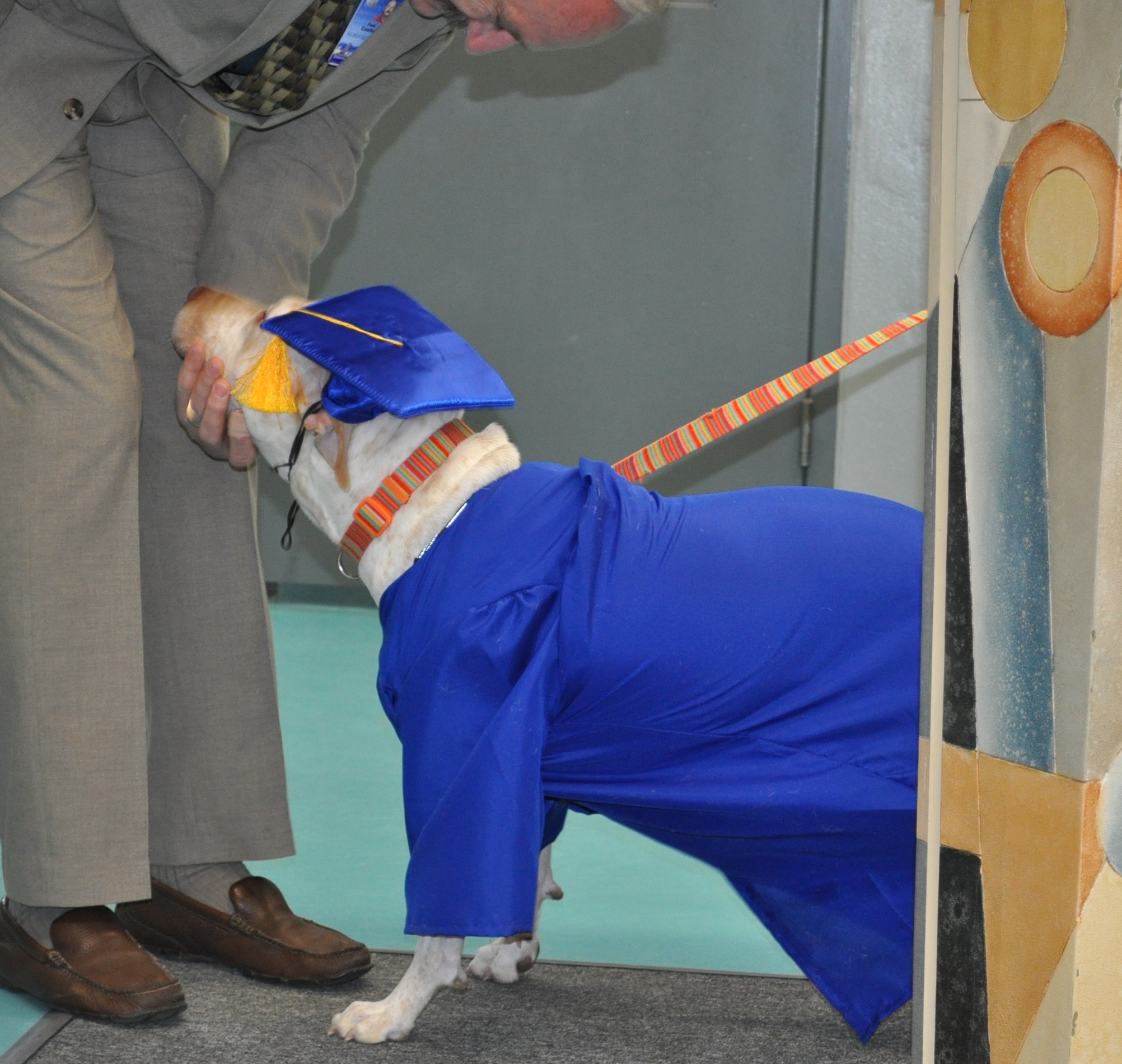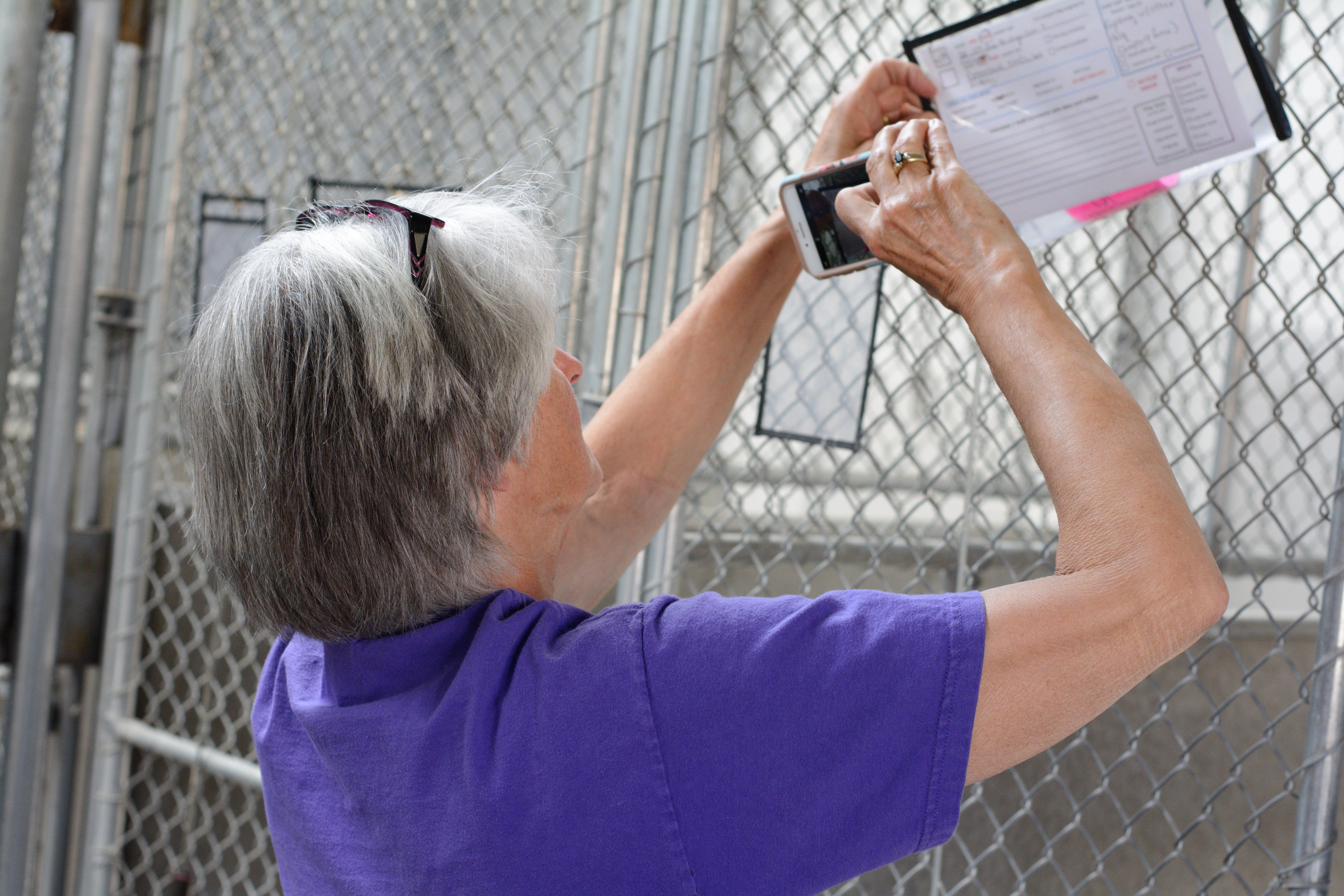“I know how it feels to be an outcast,” said professional dog trainer Joyce Spinden as she recalled a recent experience working with a teenager. Spinden says the teen found a bond with a pit bull dog — relating to its stigma.
“I know how that dog feels,” Spinden said, “that’s how I feel the community looks at me.”
In New Mexico, more than 5,000 children younger than 18 years of age were arrested in 2015 — over 240 of those count for violent crimes, according to Child Welfare League of America.

Meanwhile, the City of Albuquerque’s (CABQ) Animal Welfare Department received nearly 12,000 dogs into their care.
With a rise in both juvenile arrests and sheltered dogs, the CABQ’s Animal Welfare Department and the New Mexico Children, Youth and Families Department (CYFD) collaboratively organized 505 Paws of Hope. The organization started in 2016 to address the lives of both troubled teens and sheltered dogs.
Animal Welfare Director Paul Caster says not only is this a great collaboration but it prepares these teens for a possible career.
“I told them one day, what you’re learning in here is something that people pay big money for outside,” Caster said. “They now have a skill when they walk out and they see that as a valuable thing.”
As of right now the program is featured in both the teen girls and boys units at the Albuquerque Juvenile Detention Center, allowing a select number of juveniles the opportunity to be a dog trainer.
“We’re fortunate to have dog trainers, who donate their time to go in and train the young adults first,” Caster said. “Once they have four to six weeks of training then we take a dog into the facility.”
Spinden is one such trainer and says she sees the program growing by having more teens at the detention center help train the shelter dogs.
“What I’d like to see… if we could put another dog in the unit, that way more girls have an opportunity to work with the dogs,” Spinden said.
Currently two dogs are in the program. In March 2017, Lady Amor was the first dog who graduated from the program. Caster says they are looking to add at least two or three more dogs to the program as soon as possible.
This type of program is not a new concept. Detention centers throughout the United States have implemented similar programs. Spinden taught and worked alongside individuals in high security prisons at a similar program in Washington.
In Southern New Mexico, Prisoners and Animals Working for Success (P.A.W.S.) is another program helping both sheltered dogs and prisoners. The prisoners train dogs for about eight weeks. So far, about 40 dogs have been successfully adopted.
Spinden says seeing other programs succeed only encourages the success of the program at the Albuquerque Juvenile Detention Center.

Spinden says they are doing very basic training as of now but could be bring in training equipment for the dogs such as weave poles, obedience jumps, and tunnels.
“There is so much more that can be done here but it’s more about making sure the program is solid in these initial steps,” Spinden said.
New Mexico Director of Juvenile Justice Services Tamera Marcantel says they have received positive feedback about the program from teens and staff and has seen benefits on both sides.
“It’s benefited our staff. Their jobs are extremely difficult,” Marcantel said. “When a dog walks over to a staff member and rubs up against their leg, it helps de-stress the staff member as well.”
Marcantel says she, too, has seen how youths relate directly to the dogs.
“We’ve had our clients tell us, ‘These dogs just need a second chance, in many ways they’re just like us, we need a second chance too.’ We’re giving the opportunity to start again, together,” Marcantel said.
Follow Ricky and Allison on Twitter